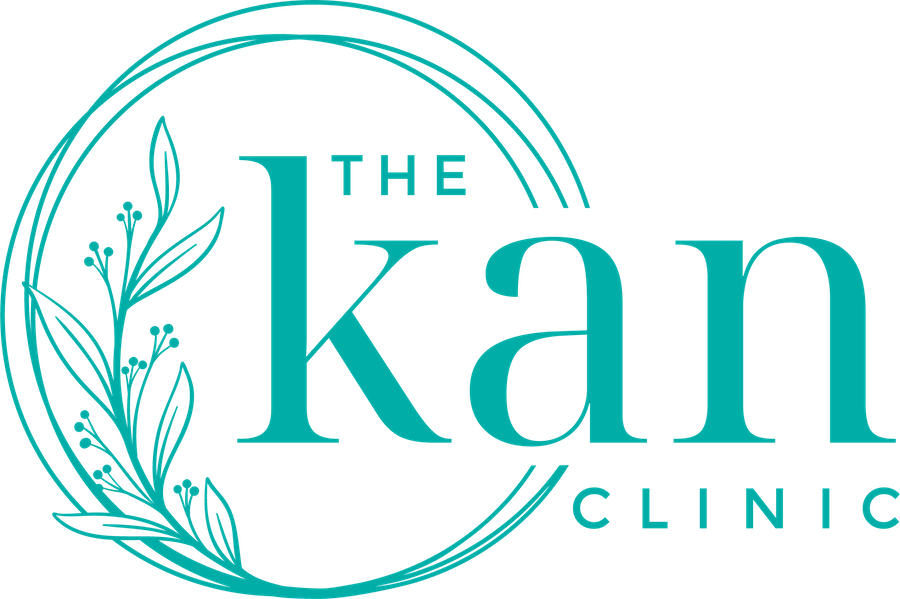Blog
Period MIA? Understanding Hypothalamic Amenorrhoea and How to Heal
It’s more than just a missing period - it’s a vital signal from your body that something deeper is going on that needs addressing. One of the most common types of amenorrhoea is ‘hypothalamic amenorrhoea’, a condition driven by stress, low energy intake, and/or excessive exercise. While it may seem benign at first, unaddressed hypothalamic amenorrhoea can have long-term implications for your hormonal health, fertility, and overall wellbeing. Today we’re discussing the ins and outs of the condition so you can better understand what might be going.
Unpacking The Pill: Masking Symptoms vs. Addressing the Root Cause
The pill has its place in the overall landscape of health and wellness, but it’s often touted as a wonder drug, magic bullet for all women’s health issues, from endometriosis to acne to anxiety to PCOS. It’s becoming increasingly clear that there is a huge amount of misconception and misunderstanding surrounding the pill, how it works, and its limitations so today, we’re going to explore all of the above and more so that you can make informed decisions for your health!
You need a high protein breakfast, especially if you’re a menstruating person
Our mum’s weren’t wrong - breakfast really is the most important meal of the day. A balanced breakfast is key to starting your day right, and one nutrient in particular is especially important if you’re a menstruating person… Protein! Today, we’re exploring why prioritising protein in the morning can be the difference in supporting a healthy menstrual cycle and overall well being.
Understanding Hormonal Acne: Causes, Symptoms, and Naturopathic Approaches
Unlike the occasional pimple, acne can be a deeply personal and sensitive condition. It’s also incredibly common. So common in fact that research has shown it affects around 85% of teens and up to 54% of adults. Hormonal acne specifically is tied to fluctuations in your body’s hormone levels and points to underlying imbalances that need to be addressed. Today I’m going to help you understand hormonal acne, from its causes and symptoms, through to how our team can help you manage it and achieve healthy, glowing skin.
Your Ultimate Guide to PCOS and All of it's Variations
Polycystic Ovary Syndrome (PCOS) is a complex and multifaceted disorder that affects millions of people worldwide. In fact, it’s one of the most common gynaecological conditions. PCOS is actually not a disease, but a cluster of symptoms occurring at the same time, driven by various underlying biological mechanisms. There are generally considered to be 4 distinct types of PCOS and in order to successfully support patients in this area, it’s important to which time type of PCOS you’re dealing with… which we’re delving into today!
Harness the Power of Phytoestrogens: A Hormone Balancing Recipe for Menopause
Phytoestrogens are naturally occurring compounds found in certain plants that have a similar structure to oestrogen, a primary female sex hormone. They bind to oestrogen receptors in the body, providing a mild oestrogenic effect, making them a particularly useful ‘food as medicine’ option for perimenopause and menopause. Today we’re outlining some of the benefits of these wonderful compounds, and providing a delicious recipe that packs a hormone-balancing punch!
Understanding the Menopausal Vagina
As people transition into menopause, a myriad of changes occur within the body, and the vagina is no exception. These changes can significantly impact the vaginal microbiome, tissue integrity of the vagina, and overall physical and emotional/mental health of people. By understanding these changes, creating a space for patients to discuss their experiences, and taking proactive measures, patients can maintain vaginal health and enjoy a better quality of life during and after the menopausal transition.
The 'Menopause Brain': Understandings and insights into why you suddenly don't feel like yourself
Menopause is a natural phase in life which occurs one year after the final menstrual period. Perimenopause however describes the phase leading up to menopause, which can last anywhere from two to ten years and is often associated with adverse symptoms including brain fog - which we’re going to discuss in depth today. By understanding the causes and impacts of brain fog during perimenopause and exploring naturopathic approaches to support cognitive health, we can empower people to navigate this life stage with greater ease and clarity.
Understanding Vaginitis in Young Girls: Causes, Symptoms, and Prevention
Vaginitis, or inflammation of the vagina, is a common condition in young girls. It can be distressing and uncomfortable, but understanding its causes can help in effectively managing and preventing it. This blog post explores the various causes of vaginitis in young girls, with a focus on common triggers.
Lichen sclerosus in Kids: What you need to know
Lichen sclerosus (LS) is a chronic skin condition that can cause significant discomfort in children. It often affects the genital and anal areas. It typically presents with white, patchy skin that's wrinkled, thin, and fragile. Labial fusion and vulvovaginal structural changes are a sign of disease progression in females. But, sometimes, itching may be the only significant symptom. In males, the head of the penis and perianal area may be affected.
In this blog post we provide a quick guide to understanding this condition, how it is treated medically and how holistic naturopathic support plays an important role
Understanding Vaginal Pinworms in Children: Symptoms, Treatment, and Prevention
In this blog post, we'll explore how vaginal pinworms in children can lead to vaginal irritation, the symptoms to watch out for, and how to effectively manage and prevent these infections using naturopathic approaches.
Thriving During the Two Week Wait
The two week wait is the period between ovulation and when your period is due. If you're actively trying to conceive and tracking your cycle, these fourteen days can feel like an eternity. Today we’re discussing how you can support your body and mind during the two week wait, and how a naturopath can assist if you don't conceive as quickly as you'd like.
The essential role of a balanced diet in menstrual health: A focus on macronutrients
The menstrual cycle is particularly sensitive to our food intake and nutrition plays a huge role in supporting and maintaining a healthy menstrual cycle and overall reproductive health. Today, we’re focusing on ‘macronutrients’, or carbohydrates, protein, and fats and discussing why a balanced diet is vital for menstrual health.
What’s the deal with Hair Tissue Mineral Analysis?
In this blog post read all about the Hair Tissue Mineral Analysis (HTMA) and why its one of our favourite tests for all clients - whether you’re wanting to optimise preconception care, cardiovascular or thyroid health, or have a family member with speech delay, emotional dysregulation, mood or behaviour challenges.
Understanding Vaginal Discharge: What's normal and when to seek help
Many of us might find it a bit uncomfortable to discuss vaginal discharge and vaginal health. Don't worry; you're not alone, and understanding what's normal and when to seek help is essential in order to take charge of your well-being and enjoy long-term symptom resolution. While symptoms can sometimes be a little embarrassing you don’t need to live with ongoing discomfort or shame.
Teen periods: What's normal?
During the first few years of menstruating, the body is highly sensitive to oestrogen and we are more likely to have bleeds that are not true periods. While the menstrual cycle first matures it can result in long or short cycles, heavy or lighter bleeds, and more painful or less painful periods. So given the common variability, what’s considered normal? and when should we be seeking further advice and support?
Migraines, PMS and bowel movements? What’s the link?
One of the most satisfying things we do is help connect the dots for clients and show them how seemingly unrelated symptoms have the same underlying cause.
So what do migraines, PMS and bowel movements have to do with each other. The link is critical!




















